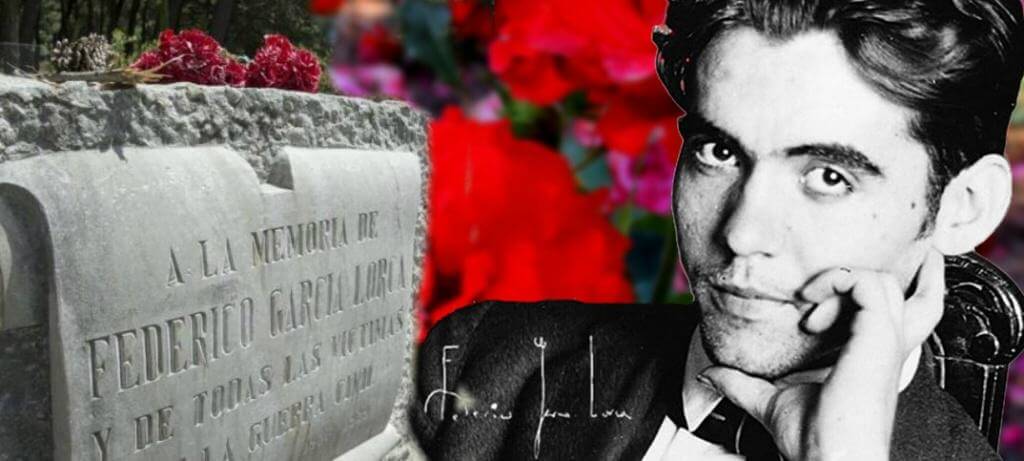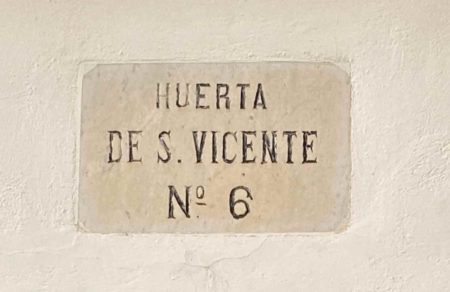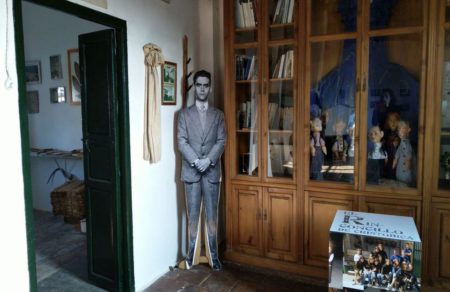Federico García Lorca is probably the most universal Granadian and Spanish poet, so much so that our Private tour to the places of Federico García Lorca in Granada keeps gaining followers. This is thanks to the quality of his work and the fact that this writer has become the symbol of what the Civil War assumed for Spanish society. His life was an example of the direction in which our culture was heading. Do you want to find out why?
Índice de contenidos
Federico García Lorca: freedom and marginality
Born at the end of the XIX century, Federico García Lorca could have become another rich landowner. However, the path he chose was very different. Perhaps, due to his slight limp, the mannerisms of his gestures or because his own teacher nicknamed him “butterfly” … from a young age he felt an overwhelming curiosity for all marginal or different things, so he always moved away from the norm. The games he played were different to the other children: he loved making his own theatre shows with his puppets, reading, playing the piano and listening to maid’s gossipin and even the gossip from around his town, Valderrubio (called Asquerosa back then).
He was a very educated youngster, but a bad student. He worked extremely hard at what he enjoyed and ignored everything else. Federico was interested in anything to do with people, what makes us who we are: love, passion, compassion, justice and injustice, kindness and wrongdoing, beauty… and he devototed his entire life to living as a human being, that’s to say, contemplating and discovering everything that life gives to us, as well as telling of his impressions and fears through his poetry and theatre.
He died aged 38 and during his very short life, he travelled and met people from all over the world and all walks of life. However, he protagonists in his work are marginalised, suffering injustices as a result of the colour of their skin, poverty or because of their gender: gypsies, black people and women feature in much of his work. He wrote in order to raise awareness of the injustices that relegated them to the background, but also worked in order to stop those. How did he do it?
Federico García Lorca and theatre
Like many intellectuals during this period, he was sure that education was the cure for poverty and marginality. This is the leitmotiv of the Barraca, his university drama group: to take classic, Spanish theatre to all towns, many of which didn’t even have a theatre, schools or any other building in which to educate the people. He was convinced that taking beauty and knowledge to each and every corner of Spain through theatre would give rise to a reflection of oneself and their surroundings.
The Civil War broke this. Just a month after the coup, Federico García Lorca was assassinated and his body is yet to be discovered. His execution could have led to the disappearance of his work. Federico and his literature have remained in the hearts of the Granadians and have reached all corners of the globe. Yes, they killed a man, but gave life to a symbol that would last until today.
Discover in this post, all the things to do in Granada.
Granada pays homage to Lorca every year
Granadians have a very special relationship with Federico García Lorca. He’s still alive within us. Many people feel him so close that when they think about him, they do so with as much love as if they were remembering a family member, like that charming uncle you never met but learned to love through the memories of others. This feeling can also be found in the rest of Spain, even beyond our borders.
Granada (Granada Tours) pays homage to Federico García Lorca each year to commemorate his death, whether that be by way of acts in the place where he was believed to have been assassinated or the city of Granada itself. Of course, CICERONE collaborates in this tribute with our tour based on Federico García Lorca’s spots in Granada. Our guides are experts in this universal poet and we take our visitors around the streets walked along by Federico, with a particularly exciting stop: the street where he was apprehended, currently a hotel and restaurant.
The fact that Lorca still remains so alive, his verses are still read and people continue coming to Granada just to walk on the ground he walked on, means that his spirit is already with us. His desire to live and to make live never died and remain with us. Celebrating what never died in the war is a great way to commemorate this date, don’t you think?




